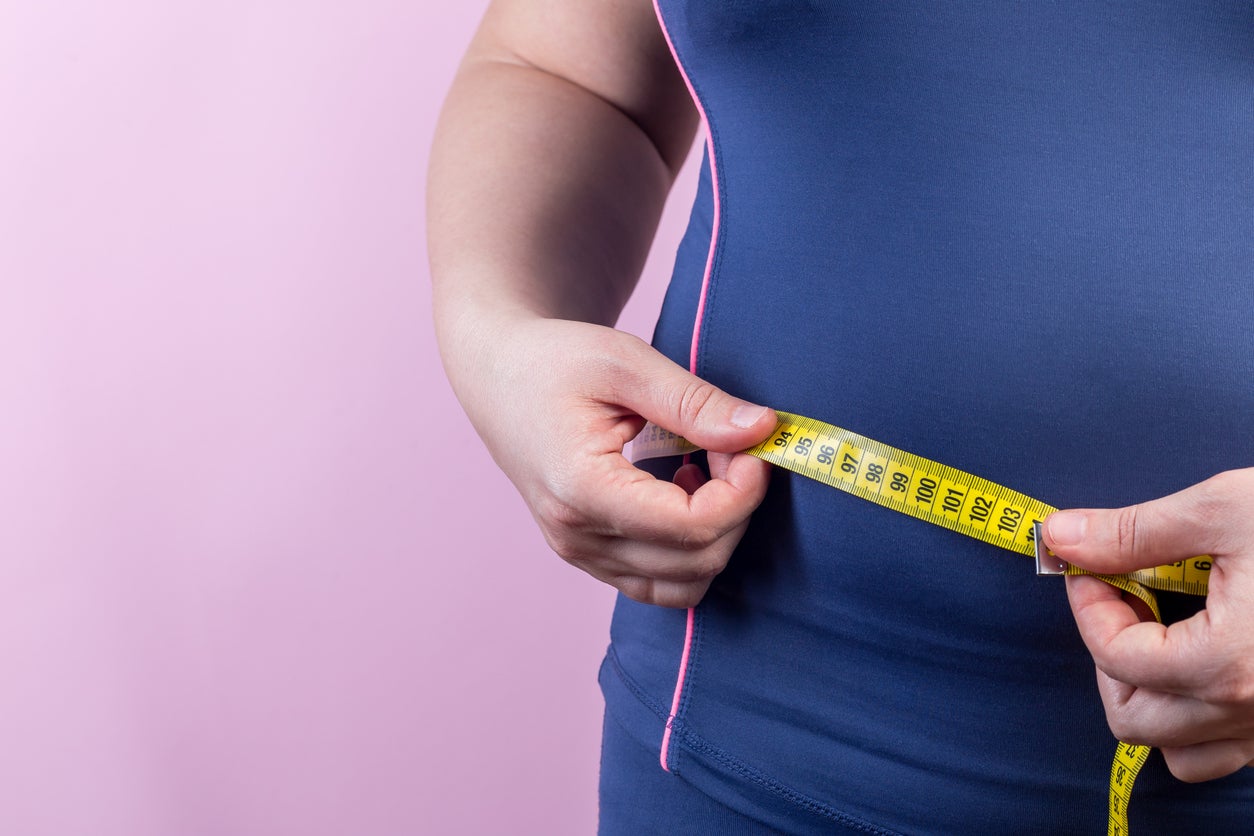I’m a fat gay man. I know. Please stop telling me
I am only now beginning to reckon with what being fat — or more accurately, what being treated badly for being fat — has cost me


Your support helps us to tell the story
From reproductive rights to climate change to Big Tech, The Independent is on the ground when the story is developing. Whether it's investigating the financials of Elon Musk's pro-Trump PAC or producing our latest documentary, 'The A Word', which shines a light on the American women fighting for reproductive rights, we know how important it is to parse out the facts from the messaging.
At such a critical moment in US history, we need reporters on the ground. Your donation allows us to keep sending journalists to speak to both sides of the story.
The Independent is trusted by Americans across the entire political spectrum. And unlike many other quality news outlets, we choose not to lock Americans out of our reporting and analysis with paywalls. We believe quality journalism should be available to everyone, paid for by those who can afford it.
Your support makes all the difference.“Not too much now.”
“It’s awful late for that.”
“We’ll get that weight off you yet.”
My grandpa thinks I’m fat. He’s never said those words to me, but he makes his point with comments like this. More than once he has said he is afraid I’ll die of a heart attack (while, like many Americans, my cholesterol is higher than where I or my doctor would like it, I’m in overall good cardiovascular health.)
I’ve always struggled with my weight. Some of my earliest memories are of being compared unfavorably to my brother, who was always lean and strong. I, on the other hand, was chubby and nerdy. I remember being filled with resentment in fifth grade at the gym teacher, a sturdy butch woman who looked like Jane Lynch if she deadlifted, drove me to tears as she screamed at me to run additional laps. It traumatized me and turned exercise into a punishment, setting me up for a lifetime of failure.
In high school, I wasn’t fat, but I wasn’t thin. I was always conscious of how much I weighed and constantly tried to hide the slight pudge of my belly. I looked at my female friends, svelte and dainty and the object of boys’ affections, and I longed to emulate what they had. The images I saw of gay men were no better. There was the effortlessly masculine Jack McPhee on Dawson’s Creek, the hit teen show of my generation, and the tall, sexy Brian and precocious blond twink Justin on Queer as Folk.
This was before Alex Newell or Daniel Franzese or Ady Del Valle provided any plus-size role models for young gay boys. Gay magazines, which included either waifish twinks or muscled jocks, made me feel like I would never belong, never be desired, never be worthy even in my own community. I maintained a relatively healthy weight for most of my twenties, though I was still regularly the fattest person in the gay club. I found men who desired me, but the insecurity with my own body never left. Sex was always with the lights out, and usually I kept my shirt on.
That was a lesson reinforced by one particularly hurtful encounter. After taking my shirt off, the man who followed me back to my house stopped, looked at my belly, and said, “I don’t think I want to do this.” No one should ever have sex with anyone they don’t want to, including me, so I would never fault him for stopping the encounter. But I also couldn’t help but feel hurt, like I was cute until he saw just how fat I really was.
But not all experiences have been bad. After making love for the first time, I confided to my ex that I was incredibly insecure. He looked at me with alarm and confusion. “But you’re so hot,” he said.
No one had ever called me hot before. Cute, yes. Adorable, sure. But never hot. I was 25.
I wished I could see myself through his eyes, even for a moment. The truth is, I have never felt hot, even at my thinnest, because even when I’m feeling fit as f*** there is always some image of a chiseled Adonis waiting just around the corner to remind me that actually, I’m just a fatass on a good day.
In my 30s I’ve gained a considerable amount of weight. Some of this was from a sedentary lifestyle; I worked in an office until 2019, and now I work from home. Mostly, though, this was weight gained from eating and drinking to treat depression. I drank because I was miserable and fat. I was fat and miserable because I drank. Again, it’s cliché, but only because it is true.
That depression is now being treated. Unlike most of the people I see on social media who lament gaining weight in lockdown, I lost 50 pounds in 2020. I’ve gained about 15 back since I quit smoking. My doctor says that’s par for the course and not to beat myself up for it. But I do. I’m frustrated I haven’t lost more weight. I am furious that I haven’t been more disciplined. I am terrified I will never be thin again.
According to the National Eating Disorders Association, more than 10 million American men will develop an eating disorder in their lifetimes. Eating disorders and negative body image are often thought of as issues affecting only women. Yet according to one survey, 77 percent of gay men have felt judged or objectified because of their body, with 58 percent reporting pressure to look attractive. Another survey found that one in three LGBTQ people have suffered suicidal ideation because of their negative body image. It’s cliché to say it, but only because it is true: the pressure to be thin or to be fit is literally killing gay men like me.
I am only now beginning to reckon with what being fat — or more accurately, what being treated badly for being fat — has cost me. I have turned down media appearances that might have boosted my career as writer because I do not want to be videoed. I made a couple of YouTube videos, and I enjoyed that. But I couldn’t stand the sight of myself. I avoid mirrors at all costs, horrified by what I see. “That’s not me, that’s Jabba the Hutt,” I found myself thinking yesterday as I glimpsed myself in a full-length mirror.
My grandfather means well when he nags me about food. I believe he comes from a genuinely good place, as most people do when they say things like, “You’ve got a pretty face, though” or, “I know you can lose those pesky pounds!” But I wish people wouldn’t say anything at all. Fat people do not need you to tell us we are fat. We do not need you to tell us being fat is bad for our health. We know. All you are doing is making us hate ourselves — not the fat on the outside, but the wounded person inside.
I am tired of hiding because I am obese, and I am tired of simply staying silent when people make negative comments about me. A lifetime of struggling with body image and yo-yo dieting takes a toll on one’s mental as well as physical health. I’m having to relearn how I eat, how I exercise, and how I view myself. Rome wasn’t built in a day, and 100 pounds won’t be lost in one, either. If my weight bothers you, well, that’s your problem. You’re the one who has to look at me. Look away, I guess.
If, like me, you struggle with your weight, remember that it is but one part of your very complex character. If, like me, you’re a fat gay man, remember that there is no right or wrong way to be gay. If, like me, you want to make a change, know that there are people who are also going through this. And if you don’t, know there are people who think that’s just fine, too.
I’m fat. I know it. You know it. I don’t like it. I’m working to change it. But until then, I request that the rest of the world shut up about it.
Join our commenting forum
Join thought-provoking conversations, follow other Independent readers and see their replies
Comments